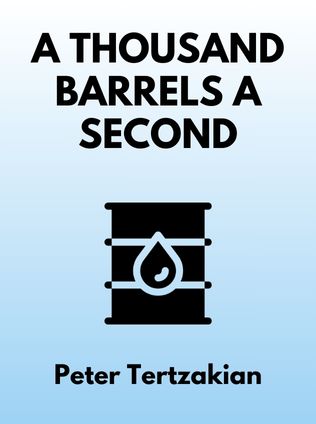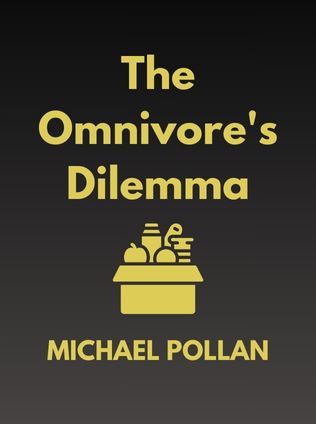
A Thousand Barrels a Second
The Coming Oil Break Point and the Challenges Facing an Energy Dependent World
By Peter Tertzakian
Published 02/2006
About the Author
Peter Tertzakian, a renowned energy economist, is the Chief Energy Economist at ARC Financial Corp., a leading energy investment firm. With a background in geophysics, economics, and finance, Tertzakian has a comprehensive understanding of the energy industry. His journey from fieldwork in oil exploration to becoming a top-ranked expert in energy matters underscores his deep knowledge and insight into the complexities of energy markets. Tertzakian is also a prolific writer and speaker, known for his ability to communicate complex energy issues in an accessible manner. His book "A Thousand Barrels a Second" delves into the dynamics of global energy consumption and the challenges posed by dwindling oil supplies. Through his work, Tertzakian aims to educate and inspire policymakers, business leaders, and the general public about the critical energy issues facing the world today.
Main Idea
"A Thousand Barrels a Second" explores the concept of energy "break points," crucial moments when the world transitions from one dominant energy source to another due to shifts in supply, demand, technology, or geopolitical factors. Peter Tertzakian argues that we are nearing a new break point, driven by the declining availability of easy-to-extract oil and increasing global energy demand. The book provides an in-depth historical context, analyzing past energy transitions and their impacts on society. Tertzakian posits that while the impending energy crisis presents significant challenges, it also offers unique opportunities for innovation and the development of new energy technologies. He emphasizes the need for a diversified energy portfolio and calls for strategic planning to navigate the upcoming changes.
Table of Contents
- Introduction
- The Coming Oil Break Point
- Warning Signs
- Questions Everywhere
- A Light at the End of the Tunnel
- Lighting the Last Whale Lamp
- The 33 Percent Advantage
- Not a Wheel Turns
- Pressure Buildup, Break Point, Rebalance
- To the Ends of the Earth
- The Technology Ticket
- The Most Abundant Element in the Universe
- Looking Back for Answers
- The Last Carbon Standing
- Is Nuclear the Answer?
- No Magic Bullets
- The Next Great Rebalancing Act
- Making Societal, Business and Lifestyle Changes
- A Golden Age of Opportunity
- The Way Forward
The Coming Oil Break Point
The world is approaching a critical "break point" in its energy consumption patterns, driven by the declining availability of easily accessible oil and the rising demand for energy. Tertzakian describes this break point as a pivotal moment when the current energy paradigm becomes unsustainable, necessitating a shift to alternative energy sources. This situation is exacerbated by geopolitical tensions, natural disasters, and the increasing difficulty of extracting oil from remaining reserves. The author emphasizes that this break point is not just about running out of oil but about running out of the cheap, easy-to-access oil that has fueled economic growth for decades.
"We are on the verge of a tipping point on oil. We are in the midst of volatility, right on the cusp of a break point that will change the way governments, corporations, and individuals exploit and consume primary energy resources, especially crude oil." - Peter Tertzakian
- The impact of hurricanes Katrina and Rita in 2005, which highlighted vulnerabilities in the U.S. energy supply chain.
- Increasing energy prices and their effects on the global economy.
Warning Signs
There are numerous warning signs indicating the approach of this energy break point. Tertzakian highlights several key indicators, including rising crude oil prices, increasing costs for other primary energy commodities like natural gas and coal, and growing geopolitical tensions over energy resources. He notes that the global demand for energy is increasing at an unprecedented rate, particularly from rapidly developing economies like China and India. At the same time, the supply of easily accessible, high-quality crude oil is diminishing, leading to a more volatile and uncertain energy market.
"The price of crude oil has reached new highs at $70 per barrel, this has already hurt profits and created uncertainty about the future for many industries." - Peter Tertzakian
- The doubling of natural gas, coal, and uranium prices since 2002.
- Concerns over the sustainability of China’s growing oil consumption.
Questions Everywhere
In this section, Tertzakian explores the multitude of questions surrounding the future of energy. These questions range from practical concerns about the availability and cost of oil to broader issues about the sustainability of current energy consumption patterns. Tertzakian emphasizes that while there is widespread agreement that an energy crisis is looming, there is less consensus on the causes and solutions. He argues that understanding the complex interplay of economic, technological, environmental, and geopolitical factors is crucial for navigating the challenges ahead.
Sign up for FREE and get access to 1,400+ books summaries.
You May Also Like
Rich Dad Poor Dad
What the Rich Teach Their Kids About Money - That the Poor and Middle Class Do Not!
By Robert T. KiyosakiFreakonomics
A Rogue Economist Explores the Hidden Side of Everything
By Steven D. Levitt and Stephen J. DubnerFactfulness
Ten Reasons We're Wrong About the World – and Why Things Are Better Than You Think
By Hans RoslingBraiding Sweetgrass
Indigenous Wisdom, Scientific Knowledge and the Teachings of Plants
By Robin Wall KimmererPrisoners of Geography
Ten Maps That Tell You Everything You Need to Know About Global Politics
By Tim MarshallNudge
Improving Decisions About Health, Wealth, and Happiness
By Cass R. Sunstein, Richard H. Thaler



















